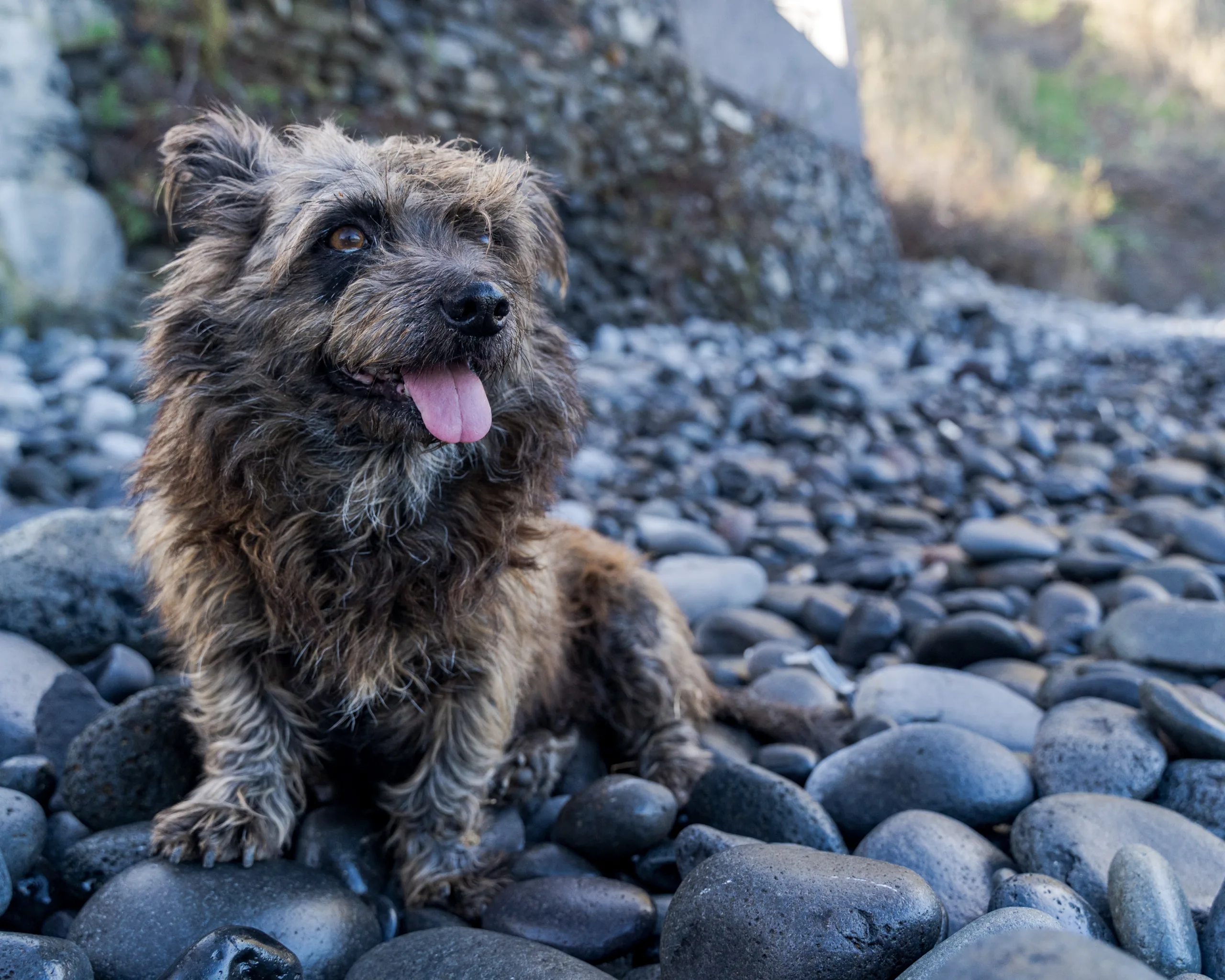Dogs have an innate curiosity and tendency to explore their surroundings with their mouths, which can sometimes lead to unexpected behaviors, such as chewing on rocks. While it may seem harmless, this behavior can pose significant risks to your furry friend’s health. In this article, we’ll delve into the reasons behind why dogs chew on rocks, the potential dangers involved, and effective ways to prevent this behavior.
For more about dogs click here
Why Are Dogs Obsessed with Rocks?
Chewing on rocks, known as pica, is a behavior that can have various underlying reasons. Some of the common causes include:
1. Boredom and Exploration:
Dogs are naturally curious creatures, and chewing on rocks might be their way of exploring new textures and tastes when they’re bored or lacking mental stimulation.
2. Teething:
Puppies, in particular, may chew on rocks to alleviate the discomfort of teething. Chewing provides relief to their sore gums.
3. Nutritional Deficiencies:
In some cases, dogs may chew on rocks due to nutritional deficiencies. If your dog is lacking certain minerals or nutrients in their diet, they might resort to eating non-food items like rocks.
4. Attention-Seeking:
Dogs are known to seek attention from their owners, and engaging in unusual behavior like chewing on rocks can sometimes get them the attention they crave.
5. Anxiety and Stress:
Anxiety or stress can trigger abnormal behaviors in dogs, including pica. Chewing on rocks might be a coping mechanism for dogs experiencing these emotions.
6. Behavioral Problems:
Some dogs develop behavioral problems that lead to pica. Addressing the root cause of these problems can help curb the behavior.
Potential Dangers of Chewing on Rocks:
Chewing on rocks can pose serious risks to your dog’s health. Some of the dangers include:
1. Dental Damage:
Rocks are hard and abrasive, which can lead to dental fractures, chipped teeth, and wear on enamel.
2. Choking Hazard:
Small rocks can easily become lodged in a dog’s throat, causing choking or even blockage of the airway.
3. Gastrointestinal Blockage:
Swallowing rocks, especially larger ones, can result in gastrointestinal blockages that require surgical intervention to remove.
4. Mouth and Gastrointestinal Injury:
Chewing on rocks can cause cuts, tears, and inflammation in the mouth and digestive tract.
5. Toxicity Risk:
If the rocks are coated with chemicals, paints, or substances, ingesting them can lead to toxicity.
Effective Ways to Prevent Chewing on Rocks:
1. Supervision:
Supervise your dog when they’re outdoors to prevent them from accessing rocks.
2. Provide Appropriate Chew Toys:
Offer a variety of safe chew toys to satisfy your dog’s natural chewing instincts.
3. Maintain a Nutritious Diet:
Ensure your dog’s diet is well-balanced and meets their nutritional needs to reduce the likelihood of pica due to deficiencies.
4. Enrichment and Mental Stimulation:
Engage your dog’s mind with interactive toys, puzzles, and playtime to alleviate boredom.
5. Address Anxiety and Stress:
If your dog is prone to anxiety or stress, consult a veterinarian or professional trainer to address the underlying issues.
6. Training and Redirecting:
Teach your dog basic commands like “leave it” and “drop it.” Use these commands to redirect their attention away from rocks.
7. Consult a Veterinarian:
If your dog’s rock-chewing behavior persists or worsens, consult a veterinarian to rule out underlying medical conditions and receive guidance on managing the behavior.
FAQs on Why Do Dogs Chew on Rocks?
Q1: Are rocks OK for dogs to chew? No, rocks are not safe for dogs to chew on. They pose a range of health risks, including dental damage, choking hazards, and gastrointestinal blockage.
Q2: How can I tell if my dog has swallowed a rock? Signs of rock ingestion may include vomiting, gagging, difficulty swallowing, changes in appetite, and abdominal discomfort. If you suspect your dog has swallowed a rock, seek veterinary care immediately.
Q3: Can I train my dog to stop chewing on rocks? Yes, training and redirection techniques can help discourage rock-chewing behavior. Consult a professional dog trainer for guidance on implementing effective training strategies.
Q4: Can a dog’s rock-chewing behavior be a sign of a medical issue? Yes, rock-chewing behavior can sometimes be linked to medical problems, nutritional deficiencies, or anxiety. If the behavior persists, consult a veterinarian for a thorough examination.
Q5: Is chewing on rocks more common in certain breeds? Certain breeds, especially those with strong chewing instincts, may be more prone to engaging in rock-chewing behavior. However, this behavior can occur in dogs of all breeds and sizes.
Conclusion on Why Do Dogs Chew on Rocks?
Chewing on rocks is a behavior that can have various underlying causes, ranging from boredom to nutritional deficiencies. While dogs’ curiosity is natural, it’s essential to recognize the potential risks associated with rock-chewing behavior. By understanding the reasons behind this behavior and implementing preventive measures, you can help keep your furry companion safe and healthy. If your dog persistently engages in rock-chewing or displays any concerning symptoms, consult a veterinarian for professional guidance.
Click here for more
